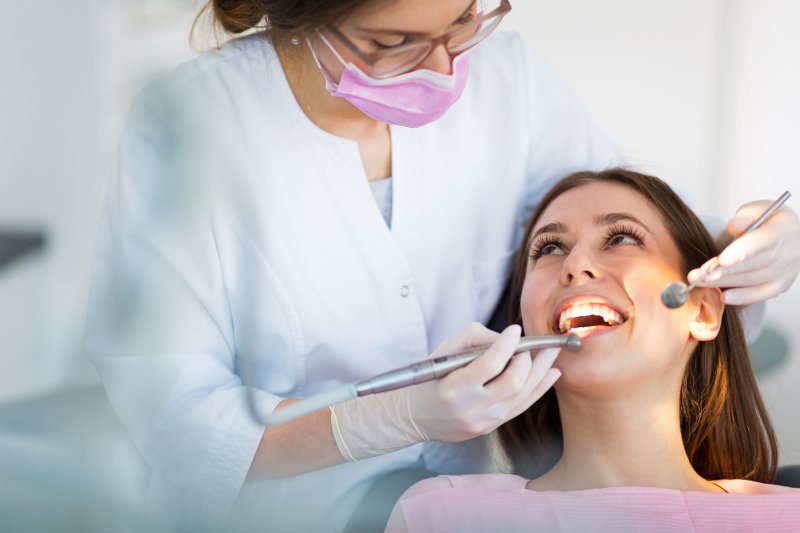Depending on what you’ve heard, you might think teeth are meant to stay white forever. After all, aren’t they called “pearly whites” for a reason? In that case, something must be seriously wrong if you notice them change color. However, the truth is quite the opposite: teeth naturally turn different colors with age. Plus, it’s normal for your smile’s shade to shift based on your diet and oral health. As proof, here’s a summary of the meanings behind various tooth colors from your dentist in Dublin.
What Does Tooth Color Say About You?
You can tell a person’s age, diet, and even oral hygiene from the color of their teeth. Consider the shades listed below:
Totally White
Unless you recently finished some extreme tooth whitening, your teeth will only be pure white when you’re an infant. Babies’ enamel is more calcified than that of adults. Also, the dentin in baby teeth is very light yellow, so it’s not very visible.
Light Gray or Light Yellow
If you have healthy adult teeth, they’ll likely be light gray or light yellow compared to what you had as a baby. Permanent pearly whites include more dentin, which has a bigger impact on tooth color. Furthermore, dentin darkens with age and will become more visible through the enamel.
Solid Yellow
In general, teeth typically turn yellow when stained from foods and drinks. The latter can have pigments that attach to enamel and alter tooth color.
At the same time, the yellow coloring could also stem from plaque buildup. You could likely remove it with brushing, flossing, and regular dental visits if it does.
Darkish Brown
It’s when yellow stains worsen that teeth start to look brown. Sometimes, enamel can darken to such an extent from age, injuries, medication, and even genetics. Still, the most likely causes of brown teeth are smoking and chewing tobacco.
If you see brown spots on your teeth, it’s essential to see your dentist at once. The coloring could be a sign of tooth decay.
How to Brighten Your Smile
If your teeth aren’t as white as you’d like, you have options besides a whitening treatment. Try following the tips below to whiten your smile:
- Avoid Bad Oral Habits: Don’t smoke or chew tobacco.
- Practice Good Oral Hygiene: Brush your teeth twice daily, floss once daily, and get regular dental cleanings.
- Have the Right Foods & Drinks: Avoid alcohol, tea, coffee, and other stain-causing items. Furthermore, eat a balanced, mouth-healthy diet. Make sure to drink plenty of water as well.
As you can see, tooth color can say much about a person’s life. If you want your own to speak good things, consider visiting your local dentist.
About the Author
Dr. Eric Buck is a dentist based in Dublin, OH, having earned his DDS from the Ohio State University College of Dentistry. His specialties include preventive, cosmetic, and restorative dental treatments and emergency procedures. He’s also a qualified provider of traditional braces and Invisalign clear aligners. Whether you want to make your smile healthier or prettier, he’ll do the job right! Dr. Buck currently practices at Distinctive Smiles and is reachable on his website or by phone at (614)-792-1800.

